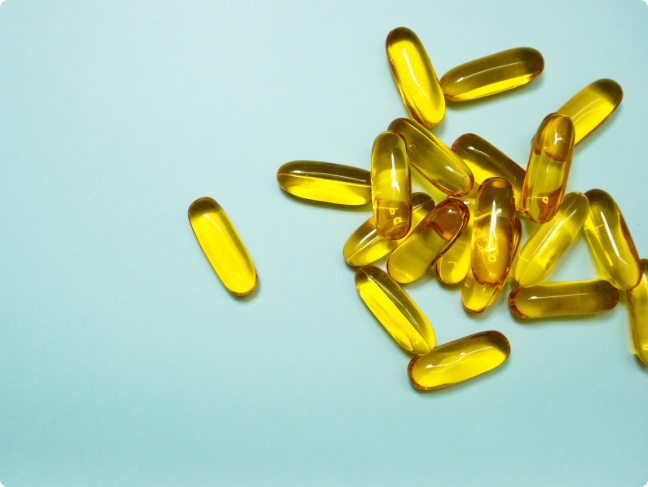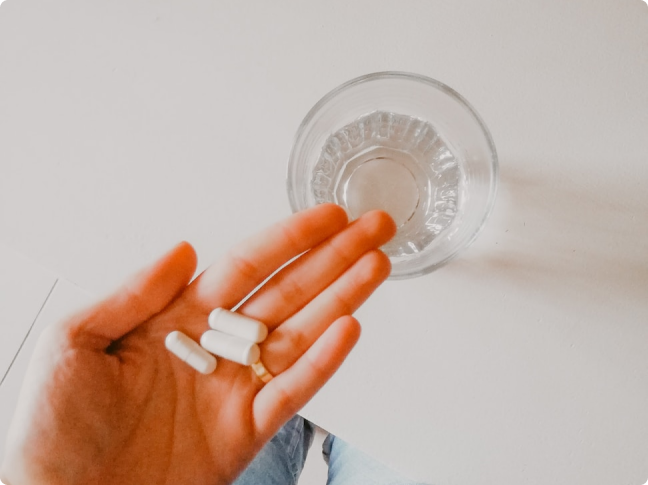Vitamin D Compounding Pharmacy
Everyone needs Vitamin D every day for optimum health. Vitamin D affects our health and well-being for strong bones and is vital in supporting our immune system.

WHAT CAN WE DO FOR YOU
Vitamin D compounding pharmacy
Compounding chemists mix and package a prescription on site rather than use pre-packaged medicines and supplements like those at most pharmacies.
This enables the creation of customised prescribed products that can be particularly important for individuals with allergies.
We compound Vitamin D supplements as capsules, liquids and injections.
Some of our Vitamin D supplements are only available at select Sydney pharmacies including:
- Vitamin D 600,000IU injection
- High Dose Vitamin D capsules 50,000IU
Zenith stocks the following compounded Vitamin D products:
- Vitamin D 5,000IU capsules
- Vitamin D 10,000IU capsules
- Vitamin D 50,000IU capsules
- Vitamin D 100,000IU oral liquid

The sunshine vitamin
Most people know Vitamin D as the sunshine vitamin, the vitamin that is produced through exposure to the sun’s ultraviolet-B rays. It’s also a powerhouse nutrient and hormone that is linked to numerous health benefits including for musculoskeletal health, immune function, cancer, diabetes and depression.
Few foods naturally contain Vitamin D and, with so many people spending time working indoors and taking sun safe precautions, it is often difficult to get the recommended amount without a supplement.
If you do have a deficiency, one way to help you get enough is by sourcing a compounded Vitamin D supplement. This is available from a Vitamin D compounding pharmacy.

What is Vitamin D?
Vitamin D is a nutrient and hormone which scientists discovered helps the body absorb and retain both calcium and phosphorus, which are the building blocks of our bones1.
Vitamin D is produced in the skin in the presence of the sun’s ultraviolet-B rays, however people with darker skin tend to have lower levels of Vitamin D because their skin pigment reduces its production.
There are only a few foods that are naturally high in Vitamin D like fish with a high fat content and, in Australia, some foods like certain milk and dairy products are Vitamin D-fortified 2 .
Vitamin D benefits
There are numerous benefits associated with Vitamin D with studies showing potential links to reducing cancer cell growth, lowering inflammation and helping with fertility and depression. While more studies are needed into some of these areas, there has been much research into the potential benefits of Vitamin D. A chemist that is specialised as a Vitamin D compounding pharmacy can assist with supplement.
-

Musculoskeletal
Vitamin D is an important nutrient for musculoskeletal health with links between Vitamin D deficiency and bone disease. It promotes calcium absorption in the gut and helps to enable normal bone mineralisation and bone growth 3 . Along with adequate amounts of calcium, Vitamin D can help protect older people from osteoporosis.
-

Fertility
Studies have shown Vitamin D may also be important for fertility health, pregnancy outcomes and lactation. A deficiency in Vitamin D is a risk marker for reduced fertility and is associated with some adverse pregnancy outcomes 4 .
-

Depression
Vitamin D may play an important role in the management of depression. Studies have suggested that treating Vitamin D deficiency in people with depression and other mental disorders may be a cost-effective therapy that could improve long-term health outcomes and quality of life 5.
-

Immune function
Vitamin D is also making itself known as an important part of a healthy immune system. Research has shown Vitamin D can promote protective immunity and a reduction in inflammation, in conditions such as COVID-19 6 . Multiple studies have shown a link between low Vitamin D levels and increased infection and, through sunlight exposure, Vitamin D was unknowingly used to treat infections like tuberculosis before the creation of antibiotics.
-

Diabetes
Many studies have proposed Vitamin D can also work to modify the risk of developing diabetes 7 . It is thought it can impact insulin sensitivity and secretion which may explain why Vitamin D may help to reduce the risk of developing type 2 diabetes.
-

Cancer
Scientists have also studied links between Vitamin D and cancer, suggesting it may play a role in cancer prevention and treatment 8 . Vitamin D deficiency has also been linked with contributing to the development and progression of several types of cancers, with researchers saying Vitamin D therapies may be a promising strategy for cancer prevention and treatment.

What is a Vitamin D deficiency?
A deficiency of Vitamin D is linked with conditions such as rickets or soft bones in children and skeletal deformities. In adults, a Vitamin D deficiency is linked with osteomalacia, a condition of weak and softened bones9 .
In Australia, it has been estimated that up to 23 per cent of women have a marginal Vitamin D deficiency, while the rate was up to 80 per cent in women who have dark skin or wear veils10 .
Other risk factors for Vitamin D deficiency include:
- People who have limited exposure to sunlight due to lifestyle factors, illness or hospitalisation
- People with dark skin
- People with conditions such as coeliac disease or inflammatory bowel disease
- Other medical conditions like obesity, end-stage liver disease or kidney disease 11
The Australian Therapeutic Guidelines recommends those at higher risk are tested for Vitamin D deficiency.

How much Vitamin D do people need?
For those Australians who have no or minimal exposure to sunlight, the daily adequate intake of Vitamin D is as follows:
- For children - five micrograms (200 IU) for children, adolescents and adults aged 19–50 years
- For adults aged 51-70 - 10 micrograms (400 IU) for adults aged 51–70 years
- For adults aged over 70 - 15 micrograms (600 IU)12
The amount of sun needed to ensure adequate Vitamin D coverage depends on the person’s skin type, the amount of skin exposed, geographical and seasonal differences and the time of day.
Sunscreens inhibit the creation of Vitamin D as they block UVB light, but studies have shown people rarely use enough sunscreen to completely block all UVB 13 . The Cancer Council says most people ensure adequate Vitamin D levels through incidental sun exposure when the UV index is above 314 .
Vitamin D supplementation
Compounded Vitamin D supplementation can be recommended for people who have a confirmed deficiency.
The Australian guidelines recommend the following:
- Supplementation at 25-50 micrograms (1000–2000 IU) per day for people with mild vitamin D deficiency
- Supplementation of at 75–125 micrograms (3000–5000 IU) per day for 6–12 weeks, or 1250 micrograms (50,000 IU) once a month for 3–6 months for people with a moderate to severe deficiency.
There are risks associated with excessive Vitamin D consumption (above 10,000 IU/day) when taken for long periods, which can cause toxicity. It can result in hypercalcemia which can lead to nausea, dehydration and constipation.
Studies have shown that Vitamin D supplementation can be effective in treating a severe Vitamin D deficiency and can prevent and cure nutritional rickets in children and infants. However, if people have sufficient Vitamin D, they do not require supplements15 .
Sources
-
2 Vitamin D intake and vitamin D status of Australians
-
4 The Role of Vitamin D in Fertility and during Pregnancy and Lactation: A Review of Clinical Data
-
5 Vitamin D and Depression: Where is all the Sunshine?
-
6 Vitamin D shuts down T cell-mediated inflammation
-
7 Vitamin D supplementation for prevention of Type 2 diabetes mellitus
-
8 Exploring vitamin D metabolism and function in cancer
-
10 Vitamin D intake and vitamin D status of Australians
-
11 Vitamin D supplementation in musculoskeletal health: what's new?
-
12 Vitamin D shuts down T cell-mediated inflammation
-
13 6 things you should know about Vitamin D
-
15 The health effects of Vitamin D supplementation: evidence from human studies


